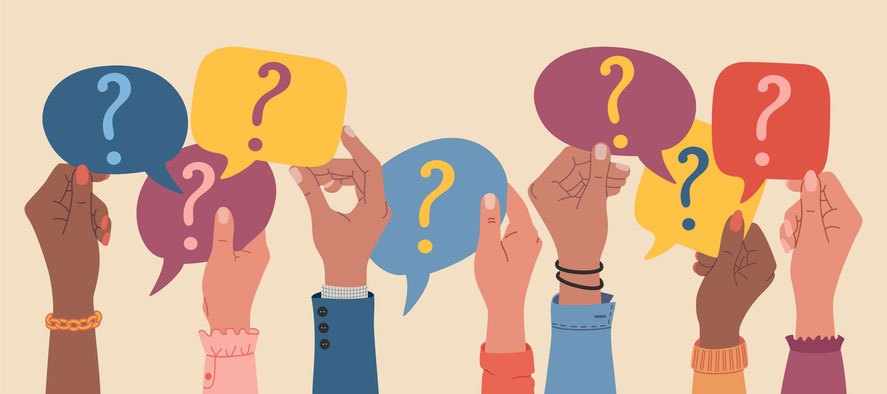Written by Sam Medley

A Master of Social Work (MSW) degree is often considered the gold standard of the field. In Illinois, you must have an MSW to become a Licensed Clinical Social Worker (LCSW). And even when an MSW isn’t necessarily required, employers frequently prefer candidates who have one. But what do you learn in an MSW program that makes the experience so valuable?
The short answer is everything. In an MSW program, even students with no previous experience can learn everything they need to know about serving Illinois’ most vulnerable people. As a full-time student, this can be accomplished in as little as two years.
In this FAQ, we’ll cover common topics covered in both years of an MSW program as well as how faculty empower students to gain real-world experience before they graduate.
Year One: The Basics of Social Work
The first year of an MSW program is often referred to as the foundational or generalist year. Students are introduced to basic social work principles and sometimes take classes in related fields like psychology and sociology.


Though the exact curriculum varies from program to program, some common first-year MSW classes include:
- Social Welfare Policy. To be effective social workers, students must have a firm grasp of what social service programs are available, how clients can access them, and what issues affect modern social policy. This not only helps future professionals understand their duties, but their place in making their communities better, more equitable places.
- Human Development. As people age, their needs change. Human development courses teach students how to meet their clients’ physiological, emotional, and social needs based on where they are in their life cycle.
- Social Work Practice with Families, Groups, and Individuals. These courses typically teach students the hard skills they need to succeed in direct practice roles. This includes case management, assessment, fundamental techniques like crisis intervention, and long-term care planning. Many programs offer separate classes so students can learn how to apply these skills to groups and individuals.
- Research Methods. Even if students don’t plan on entering research roles, understanding how to design experiments and interpret new findings is key to meeting society’s changing needs. Social work research classes teach students how to approach their careers with a critical, informed eye.
In addition to these classes, students might also take courses on ethics, cultural competence, and other issues they’ll likely encounter on a day-to-day basis.
What If I Have a BSW?
Students who already have a bachelor of social work (BSW) have likely already learned everything the generalist year has to offer. Fortunately, they don’t have to sit through a year of repetitive classes.
Students with BSWs can apply for advanced standing MSW programs that only include advanced classes. Most MSW programs have an Advanced Standing option. Because an Advanced Standing program can be completed in as little as one year, students can save time and money and get a jump start on their careers in advocacy.
Year Two: Advanced Principles and Specialized Coursework
The second year of an MSW program is often known as the specialized, advanced, or advanced practice year. Classes often cover advanced intervention techniques, organizational leadership, policymaking, and program evaluation.

However, what you learn in an MSW program at this level will largely depend on your own professional goals and what degree specializations your program offers. Some degree specializations include:
- Gerontology and senior services.
- Child and family welfare.
- School social work.
- Healthcare social work.
- Mental health and substance abuse.
- Forensic social work and serving people involved in the criminal justice system.
- Clinical social work.
- Administration, social service management, and program planning.
- Community-based practice.
- Policy advocacy.
- Social justice and working with marginalized groups.
Keep in mind that different programs offer different specializations. Students who don’t have a specialization in mind often enroll in Advanced Generalist degree tracks. On this track, students typically take classes on multiple types of social work as well as courses about advanced direct practice and leadership skills. They can take this knowledge to just about any type of social service agency.
The Fieldwork Experience: Bridging the Gap Between Theory and Practice
What you learn in an MSW program doesn’t go unpracticed. Through the fieldwork experience, you’ll actually get to observe and work alongside licensed social workers. But unlike in other types of graduate programs, real-world experiences aren’t an optional luxury reserved for some students. Completing fieldwork hours is often a requirement
How Fieldwork Works
According to the Council on Social Work Education (CSWE), all accredited MSW programs must require students to complete at least 900 hours of supervised field instruction. Some MSW programs in Illinois require more, but most divide the experience into two parts.
The first part is typically completed in the foundational year. Faculty help students find placements at nearby agencies where they can practice basic skills like case management and assessment. Students may also take part in program management and other administrative tasks. Students then meet in class to discuss their experiences and gain insight from their professors.

The second part takes place during the advanced year. Students who specialize in a specific type of social work are typically placed in agencies that serve populations they want to serve themselves. This way, they can become familiar with the needs of their field, learn about groundbreaking interventions, and build a professional support network that can make the transition into the workforce that much easier.
Find the Right MSW Program For You
Now that you know what you learn in an MSW program, it’s time for the next step. finding one that can help you help others. Our editors have compiled lists of the best CSWE-accredited MSW programs in Illinois along with affordable, part-time, online, and hybrid options. Each one has unique degree specialization options and fieldwork partnerships that make for a truly impactful experience.
Not sure if an MSW is realistic for you? Learn about the many scholarship and financial aid programs open to social work students in Illinois. These resources, combined with the many ways to customize the experience, make earning an MSW more accessible than ever.
Author

Sam is a freelance writer with a passion for learning about any and everything he can. When not reading or writing, he can be found helping his wife tend to the bees, ducks, chickens, and plants that populate their little Kentucky homestead.
View all posts






